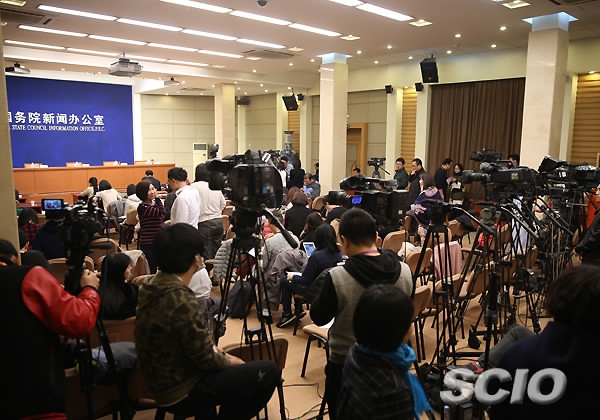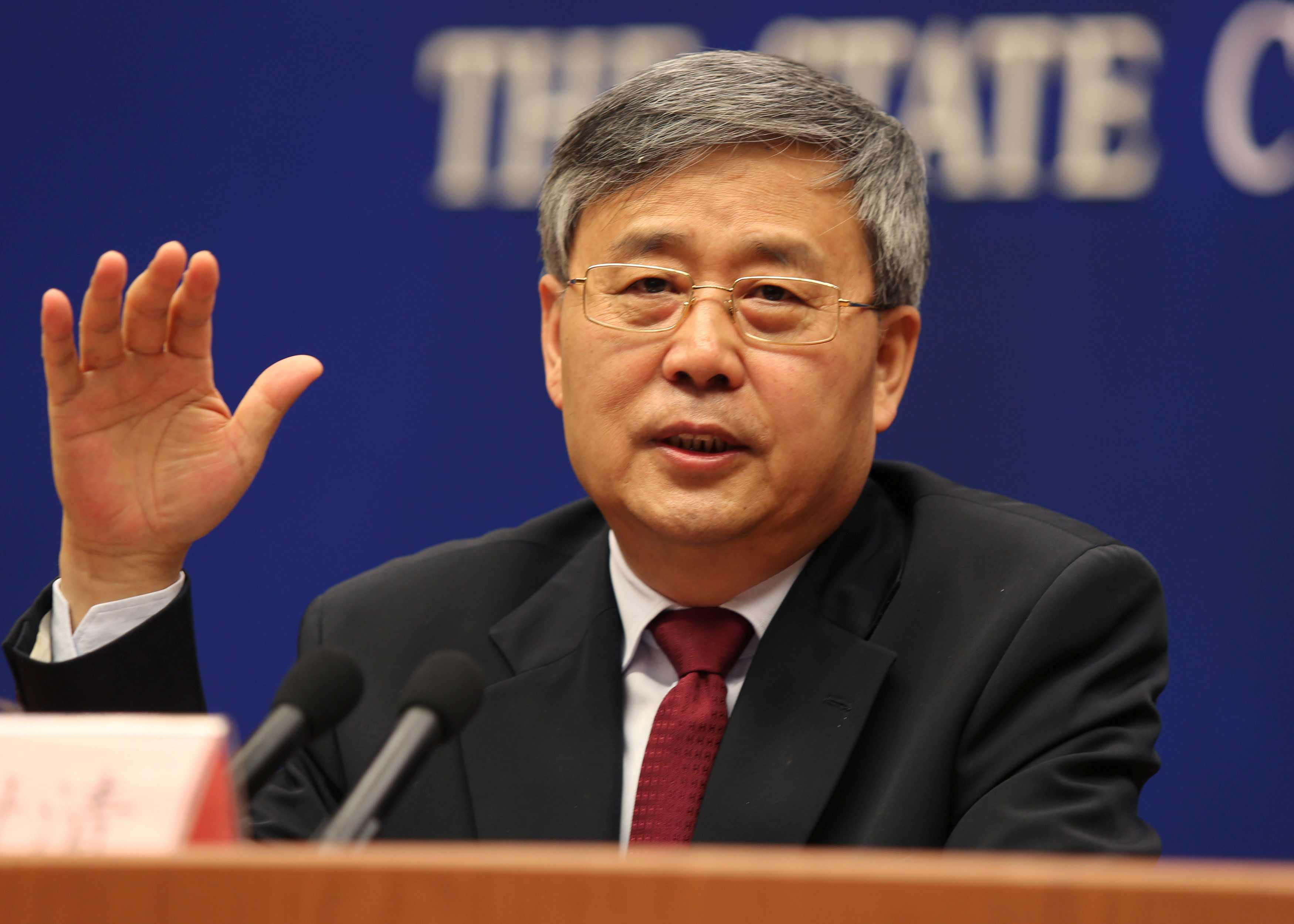The new Chairman of China Banking Regulatory Commission, Guo Shuqing, said that China’s systematic risks in the banking sector and financial industry are controllable, and promised to properly deal with debt-to-equity swaps to tackle high corporate debt.
Guo made the remarks during his first press conference on Thursday after replacing 65-year-old Shang Fulin earlier this week as the head of the official banking supervising body.
“Corporate leverage should be reduced. Now debt-to-equity swaps have used more than 40 billion yuan (5.81 billion US dollars), and we are going to introduce more policy support and risk monitoring to push for more new results of debt-to-equity swaps,” he said.

Reporters await for the Guo Shuqing's press conference in Beijing on March 2, 2017. /SCIO Photo
430 billion yuan (62.46 billion US dollars) worth of debt-to-equity swaps have been signed, while 40 billion yuan (5.81 billion US dollars) have been implemented, according to Guo.
China’s State Council in October released a guideline on the debt-for-equity swaps, saying companies with "temporary difficulties" but "long-term potential" will be able to exchange their debt for stocks. The guideline also said poorly performing "zombie enterprises" and those with bad credit records will be forbidden from participating.
Guo also said that China plans to improve transparency, shorten companies’ financing chain and lower their financing costs, as well as keeping deleveraging in companies.
Vice Chairman Wang Zhaoxing also said that the banking regulatory body encourages banking assets and debts to be diversified, in an attempt not to concentrate the risks.
“Credit and loans should enter the real economy and the real economy should be well-supported,” he stated.
Guo added that the central bank, and the securities and insurance regulators are working on "joint regulation to set basic standards that every institution can follow.”

Chairman of China Banking Regulatory Commission Guo Shuqing /Reuters Photo
“Banks, trusts, fund-management firms, brokerages and insurers all have asset-management operations, but because they have different regulators and are subject to different rules, there’s been some chaos. Some capital has gone from the real economy to the virtual economy recently. We’re working on joint regulation to set basic standards that every institution can follow,” Guo said.
The CBRC, the central bank, and the securities and insurance regulators have been working together to control the nation's shadow-banking sector.
The former governor of Shandong Province succeeded Shang Fulin after the latter reached retirement age.
His appointment was highly anticipated as he is believed to have what it takes to lead China’s banking sector into better times, considering his previous occupations as director of the State Administration of Foreign Exchange. He was once vice governor of the People’s Bank of China, chairman of China Construction Bank, and chairman of China Securities Regulatory Commission.
Guo led a host of market-oriented reforms during his tenure as chairman of China Securities Regulatory Commission, including introducing a new policy every week on average in 2012. As the governor of Shandong Province, he also deepened reforms to improve fiscal transparency, and axed government approvals for certain projects to facilitate business.









